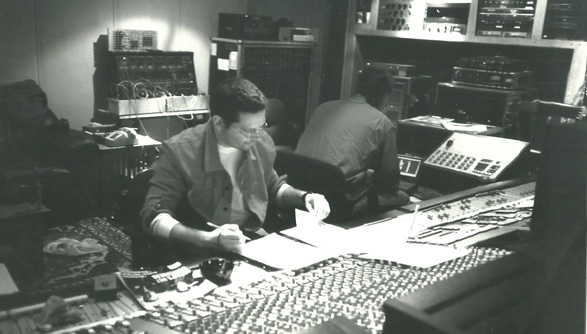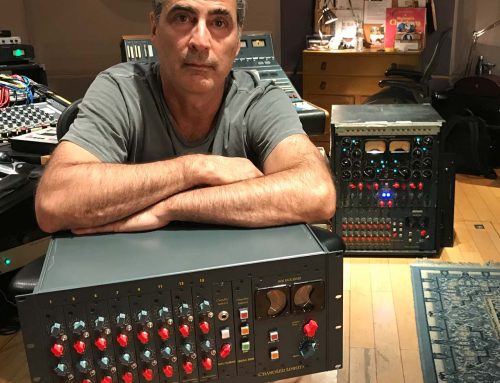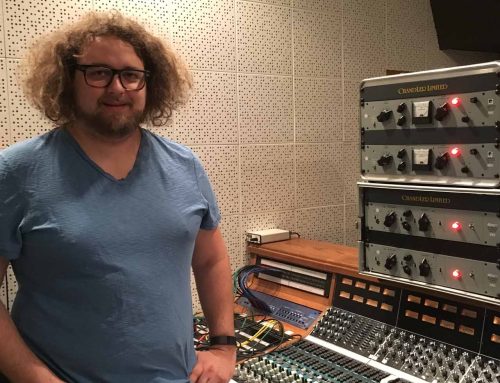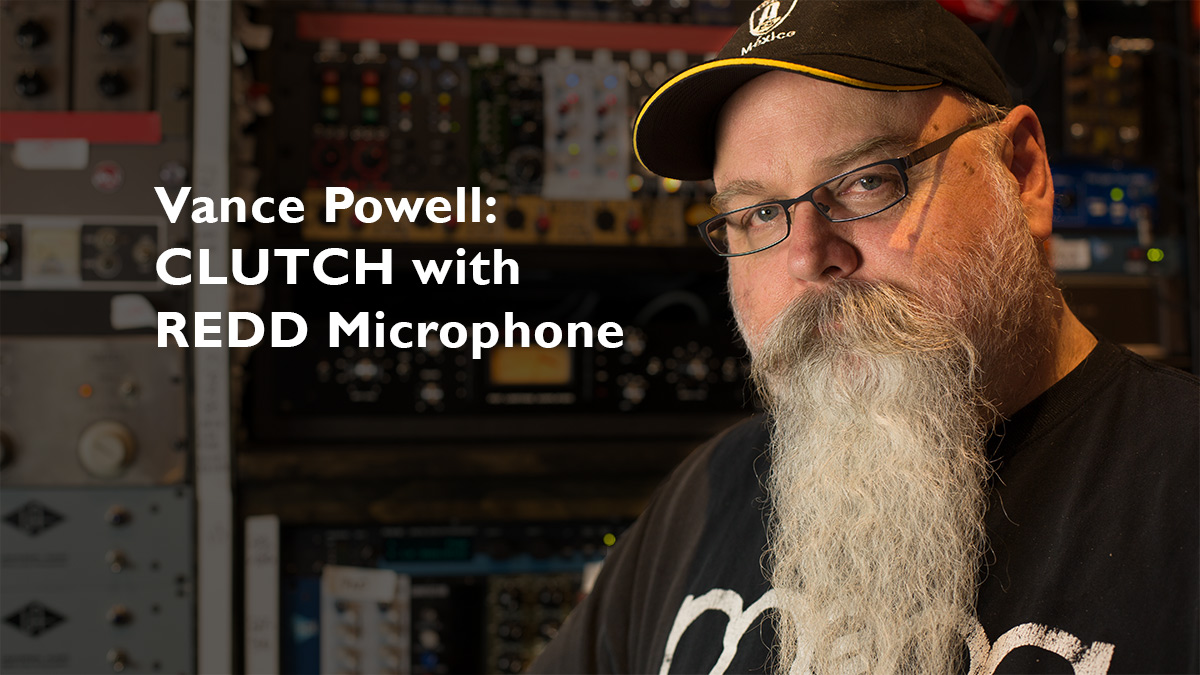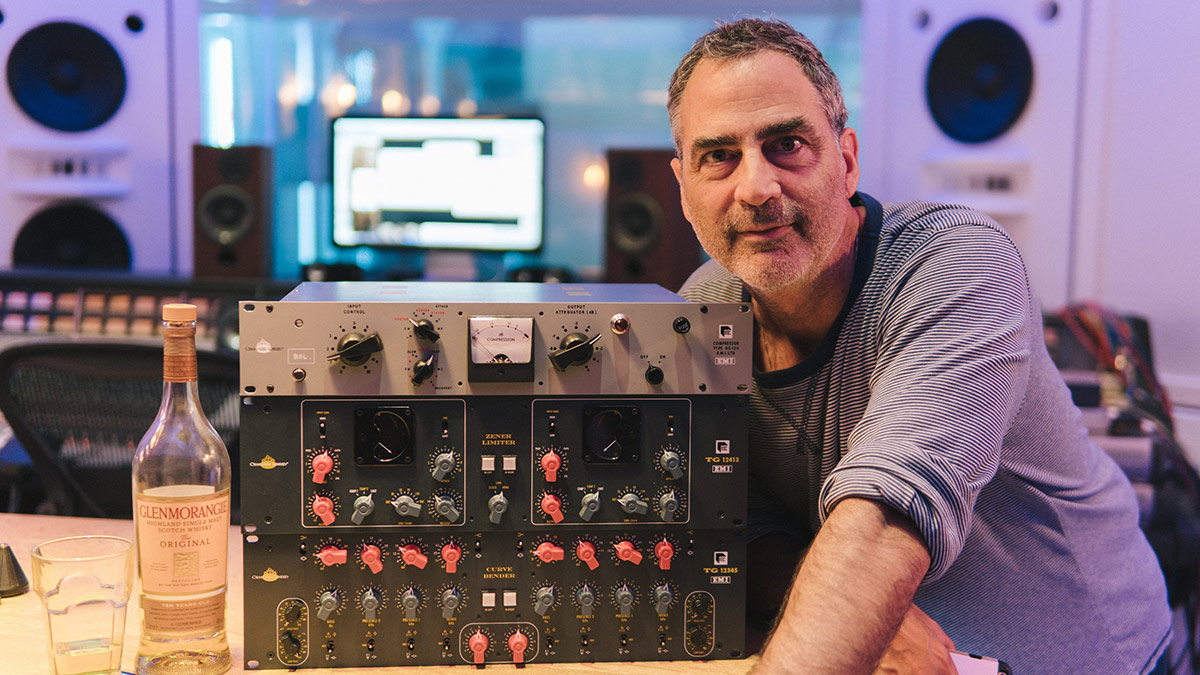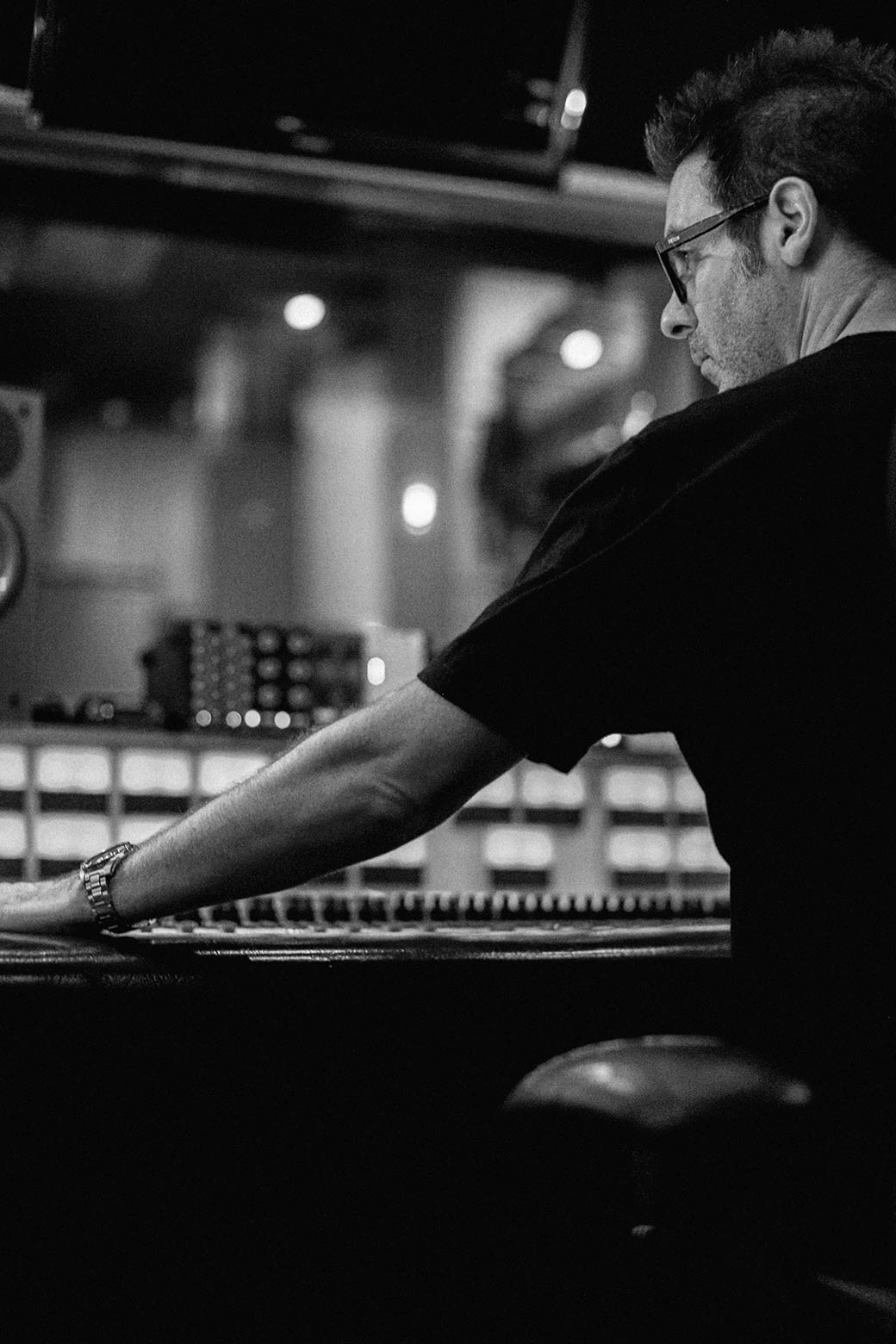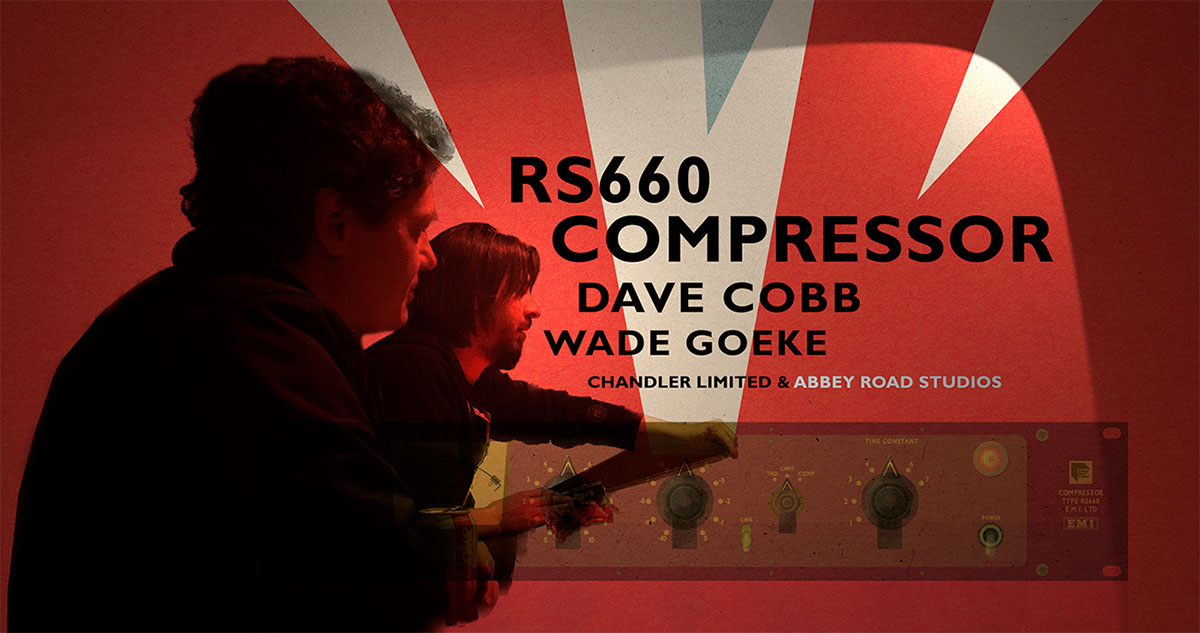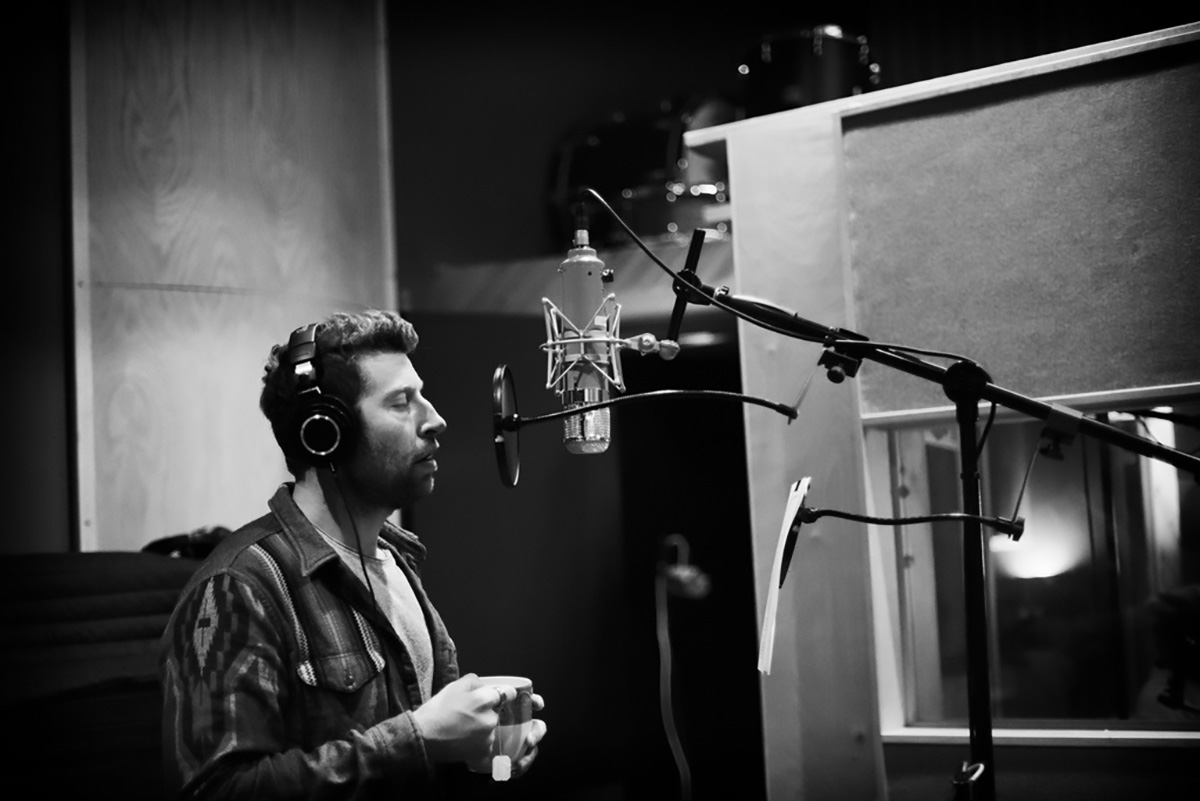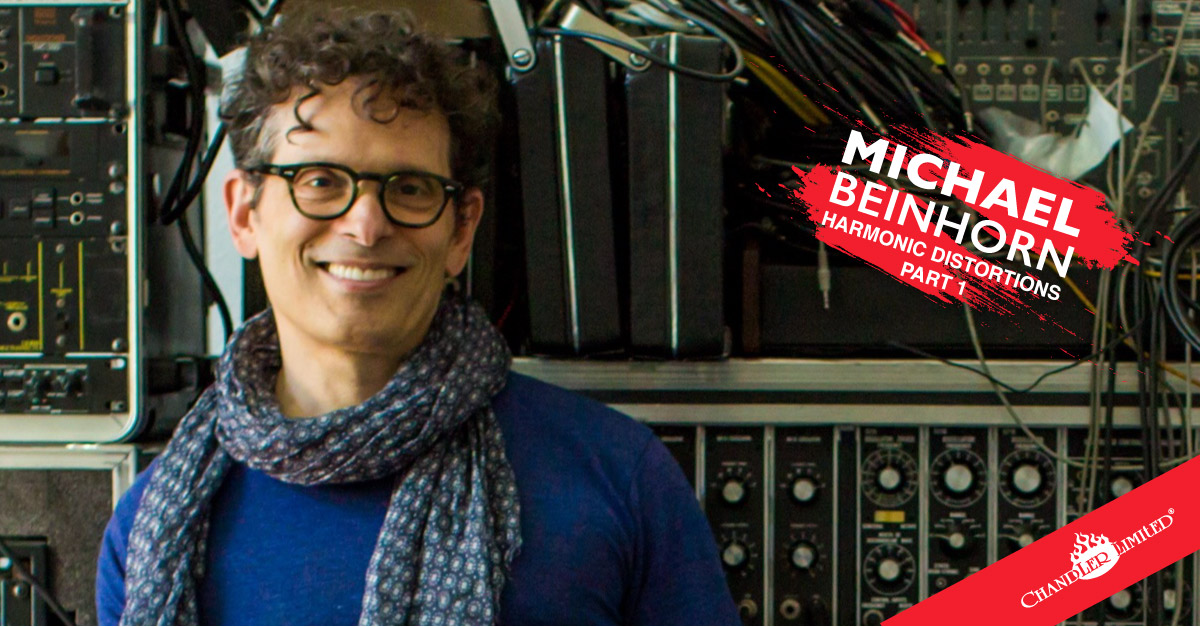 Shell Rock, IA – JUNE 2015 … It’s been just over three decades since a young keyboard player in Bill Laswell’s group, Material, made the jump to production as co-producer for Herbie Hancock’s Grammy® award-winning album, Future Shock. Many of the tracks on Future Shock including the hit “Rockit” were co-composed by Michael Beinhorn.
Shell Rock, IA – JUNE 2015 … It’s been just over three decades since a young keyboard player in Bill Laswell’s group, Material, made the jump to production as co-producer for Herbie Hancock’s Grammy® award-winning album, Future Shock. Many of the tracks on Future Shock including the hit “Rockit” were co-composed by Michael Beinhorn.
Future Shock was hailed as groundbreaking, and it’s only fitting that Michael Beinhorn’s production aesthetic and career have continued on an exciting arc of energetic, boundary-pushing records.
Michael’s artistic journey has seen him play many roles: producer, engineer, composer, arranger, performer, technical innovator, and shepherd to some incredibly rocking recordings of the modern era. A review of Beinhron’s discography is eye-popping, including, Red Hot Chili Peppers, Soul Asylum, Sound Garden, Aerosmith, Hole, Marilyn Manson, Ozzy Osbourne, Korn, and a host of other artists. With Michael’s place in music production lore firmly in place, he can now add Author to his resume with the release of his book ‘Unlocking Creativity: A Producer’s Guide to Making Music and Art.’
Beinhorn’s seasoned audio palate, and strong desire to bring to fruition the sounds only he hears, has led him to not only stretch the limits of pro-audio gear, but literally create a new audio format along the way.
Michael has been a longtime Chandler Limited user, and we were fortunate to catch up with the ever-busy producer when we provided additional gear for his Courtney Love session (Wedding Day EP) at Tommy Lee’s studio, The Atrium, in early 2014.
In this three-part interview, we’ll cover Michael’s thoughts on today’s music industry, his production methods and gear, and a dissection of the Courtney Love ‘Wedding Day EP’ sessions, which used a lot of Chandler Limited gear.
CL: Okay, we’re convinced you’re not only a music producer, but a time traveler too. When we were coordinating with you seemingly across multiple time zones and airports for the Courtney Love session, you were in the middle of another production in Europe, and jetting back and forth. So many records in now, what keeps the creative flame burning for you?
MB: I’ve always believed it was an unquenchable lake of fire located near the Islets of Langerhans. Seriously, the one thing that gets me going is this crazy idea that a recording project can still be an exposition of creative ideas. That all of us together, the artist, engineers, producers, etc can become a team of artists working toward a unified common goal which is potentially so much greater than what would be accomplished by just one artist alone. That fusion, when it’s present, is the most addictive substance and the most potent source of energy I have ever encountered. I suspect it also might be the fountain of youth.
CL: You were stationed in Europe for a lengthy session, and relocated most of your gear there too, including your Chandler Limited Mini Rack Mixer. Can you tell us more about that project?
MB: I was working in Copenhagen with Mew, who I also worked with in 2004. We cut tracks in a recording studio (STC), but all the overdubbing was done at the band’s rehearsal space (which had been an auto repair shop in a previous incarnation) and the singer’s apartment. It was a real undertaking just to get these places acoustically sound for recording and playback. The band’s rehearsal space had plaster walls, a front and back room and, having been a car repair shop, there were two holes cut in the wall which separated the rooms, presumably to accommodate cars being fixed. The band were initially skeptical about improving separation between the two rooms until the guitarist set up an amplifier in one room, ran a cable to the other and began playing, whereupon, he realized that the amplified guitar was nearly as loud in the room he was in as it was in the room where the amplifier sat. Needless to say, a lot of similar adventures took place. Since I knew the singer’s apartment and the band’s rehearsal space were immutable parts of the recording equation, I brought along some gear I knew we’d need. All I can say is, thank goodness for the Chandler Mini Rack Mixer.
CL: Music production really is like no other art form; every piece is filled with intricacies and dependencies on many levels. As the producer, you’re the ringleader and at times psychologist of the collective for the given project, and there’s definitely addictive energy when everybody’s firing. However, how do you deal with a session when the vibe is off, or someone’s not cutting it?
MB: I’ve found myself in a variety of situations like the one you’re describing and have learned to recognize that each one is unique – different circumstances, different people, different time, etc. My own response to this type of thing is first, to recognize and understand exactly what is happening and next, figure out if it can be worked with as it is or if something must be done to alter it and make it workable in the overall context of the project. From there, I try to use my intuition to come up with a creative solution to the problem. The creative process is very fragile, it’s hard to tell what’s going to derail it or when this might happen. Since no one can predict what’s coming down the pike, I just try to remain open and flexible.
CL: You’re known for quite rocking records, though we’ve got know???… how did you go from Herbie Hancock’s Future Shock to Hole, Marilyn Manson, and Korn; it seems like such a contrast?
MB: In the overall scheme of things, it wasn’t such a stretch. You have to consider the time period I came up in, where people were making all kinds of music, experimenting, pushing creative envelopes and the audiences were equally all over the map. I related to all kinds of music forms, since, as it is said, the paths are many, the truth is one. I started out doing experimental, electronic music and within 3 years, matriculated to hiphop which was formative to working with Hancock. From there, it was a hop, skip and a jump to a band like the Chili Peppers which had heavy R&B/funk influences, as well as rock and punk. With this in mind, the progression makes sense.
CL: Anyone who spends time with you, or reads the musings from your blog can tell you’re exceptionally passionate about our industry. The music industry has changed greatly during your career, what for you have been the biggest changes, and how have they affected your productions?
MB: Yes, I think the music industry has changed a lot over the past 30 years. Three game-changers for me have been the way music is delivered, the piracy issue and how music creation has become increasingly systematized and deconstructed. Nearly all of this has either resulted in – or is the result of – gradually diminishing revenue streams to the industry. Itself and often makes me think of a snake eating itself. Another consequence is, there is less support for artists who want to make records in an unorthodox manner or one that befits their creative process. Having smaller income streams has led to less music industry infrastructure, which has consequently generated a greater sense of upheaval and fear. When people are afraid, they tend to make poor decisions. Conversely, they also tend to make moves which appear safe in the short term, which is ideal if you are trying to conform to a preexisting standard, but not so great if you’re trying to blaze a trail or just be yourself.
CL: With the atrophy of the traditional music industry goliath, are you seeing artists coming to you with their own backing, and infrastructure or ability to promote the project?
MB: With the Goliath that was the music industry having atrophied into a homunculus at warp speed, every artist I’ve worked with recently is either independently backed or entirely self-funded, with no record company affiliation and no specific plan to acquire a recording contract once the project has been completed. It feels as if many artists want to explore other options to fund and exploit their own work outside of the sole traditional options that are looking less stable than ever before.
CL: Has the smaller industry and withered infrastructure closed ranks to the point that it’s consciously blind to anything outside the conformist mainstream molds (i.e. fear within the business side of the industry has created an environment of producing widgets that look and sound like other widgets that we know will sell)?
MB: My feeling is, that conformist mainstream mindset you referred to is, in a great part, what has set the withering of the music industry in motion. Conformity is sometimes a manifestation of fear, relative to the music industry. Fear and conformity have been nourishing one another for quite awhile. I feel there is a pattern here. As the music business has become more about business and less about music, there have been increasingly greater efforts within the industry to systematize the creation of music itself in order to maximize profits. And, the more intently the music industry strives as a whole to make more money, the less concerned it becomes as a whole with the quality of the art it is supposedly helping to generate (which makes no sense, since that art is the commodity the music industry is actually selling). No, I don’t believe most people in the music industry can get their heads around anything outside of what sounds familiar, acceptable and safe to them. In a sense, identifying, developing and exploiting great art are no longer job requirements for a modern record executive, therefore, the need or expectation to move outside of their safety zone is kind of a moot issue. In the midst of all this, the one thing everyone seems to ignore is that while more people are listening to music than ever before, fewer and fewer people are actually buying music that has been created specifically to sell and appeal to a lowest common denominator audience. As an example, the first million seller of 2014 was actually released a few weeks ago in late November. Verily, the mind boggles.
CL: Is there a new genre you see on the horizon or would like to see, that will re-focus industry attention from the seemingly homogenized and gentrified norm?
MB: I feel that anything musically significant is foremost, an emotional expression and with this in mind, greatness always transcends musical genres. A great piece of music just needs to be compelling and have a palpable visceral quality to it. I don’t believe that greatness will or should come from any specific direction, nor is it limited to any specific genre. Simply put, I would like to see more music that is a unique expression of the artist making it, direct, emotionally raw and expressive. If there was more modern popular music with those qualities, I’m positive that audiences would be more inclined to invest in it.
CL: With so many sessions under your belt, you’ve definitely earned your red badge of courage along the way. You’ve recently overhauled how you work creatively with artists. What brought about the change, and how has this new approach worked so far?
MB: More than anything, I’d say the way I work has evolved. Perhaps I’m just more aware of my process than I once was. One reason for this is because I began to notice how music production was generally becoming a one-size-fits-all proposition and I didn’t want to fall into the trap of conformity, especially when that can potentially put the artist’s work at risk. Another pertains to how difficult it is to maintain a project’s uniqueness with so much pressure to get it done as quickly as possible. I’ve simply had to modify what I do in order to accommodate artists at every level of the spectrum and still provide them with what they may need.
CL: What do you look for when considering working with an artist, what more than anything draws you to a potential project?
MB: My creative relationships are formed based on how I experience the medium itself. Since I experience music as a mode of communication, I need to be able to connect on a visceral level with an artist’s work in order to be able to go deep into it. It has to speak directly to me, to invite me in. That’s a very personal thing, but anything less is a waste of time for everyone involved. There is always at least one extremely compelling element (a specific song, the overall band sound, the sensibility that emanates from the music, etc) that draws me to the projects I work on, and which helps me serve every aspect of it better. This approach makes sense. If you love something passionately, if it inspires you and you can’t stop thinking about it, you’re going to do the best possible job at it.
CL: The albums you produce seem as if controversy is built into the fabric of the production, not in a traditional sense, but the music and presentation really cause a reaction. Is there a conscious effort to test boundaries?
MB: I don’t consciously think about testing boundaries. However, I try to be open to creative possibilities and I have a chronic allergy to the concept that certain things can’t or shouldn’t be done. It pleases me to see an artist I’m working with push through and beyond his self-perceived limitations. I’m constantly impressed as to how far the creative process can take a group of individuals when everyone is open to possibility and committed to working together. Engaging this awareness is almost like invoking a magic spell. My experience is, if you have the courage to be this open, the boundaries dissipate on their own.
In the part two of Chandler Limited’s Michael Beinhorn ‘Featured Artist’ series, we cover production concepts with the producer. In the meantime don’t forget to check out Michael’s new book ‘Unlocking Creativity: A Producer’s Guide to Making Music and Art.’

